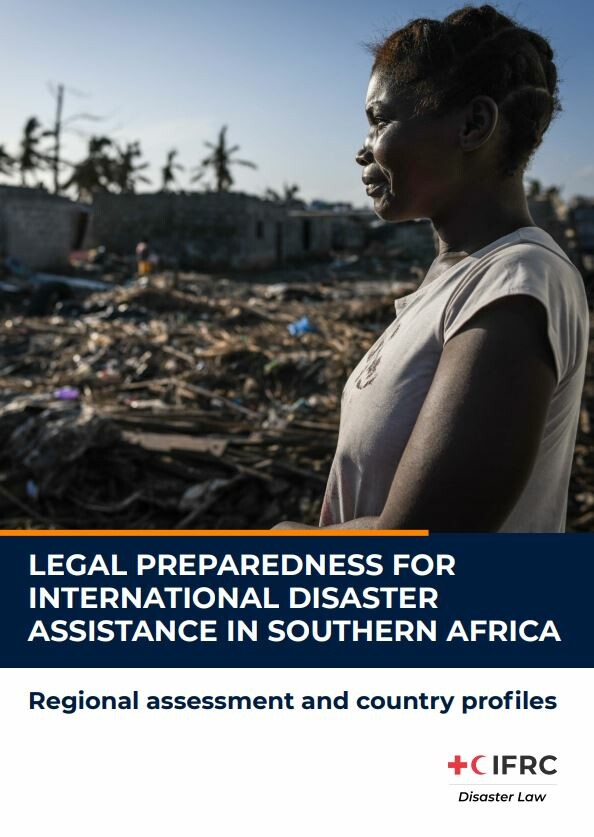
A new report developed by IFRC Disaster Law, Legal Preparedness for International Assistance in Southern Africa: Regional Assessment and Country Profiles, examines the legal frameworks of ten countries in Southern Africa to determine legal preparedness for international assistance should a disaster exceed national capacities, and proposes recommendations to strengthen international disaster response law (IDRL) in the region.
María Martínez, IFRC Disaster Law Coordinator for Africa says strong legal frameworks for humanitarian assistance are a must in a region that faces significant disaster risks.
“Southern Africa is vulnerable to the serious impacts of climate-related disasters such as droughts, floods and cyclones. These disasters have the potential to overwhelm the domestic capacities of a country to respond.”
“Our report shows how law and policy can ensure legal preparedness for international disaster assistance, should a country struggle to cope with the impact of a disaster. Laws and policies can enable appropriate, efficient, and coordinated disaster response, and help ensure life-saving assistance can be provided to those who need it most.”
Key findings:
-
Most of the countries studied have dedicated disaster risk management (DRM) legislation, and some of these laws contain provisions on international disaster assistance. A number of countries also reference the need to develop regulations or guidance documents on international disaster assistance in their DRM laws, which indicates that there is a recognition of the importance of regulating and facilitating international disaster assistance. In some instances, the provisions on international disaster assistance in the law were limited but more detailed provisions could be found in the relevant DRM policies.
-
At present, there is no guiding framework on international disaster assistance at the regional or subregional level to promote a uniform approach to international disaster assistance in the sub-region, and most states are not party to the international agreements which regulate aspects of international disaster assistance. As a result, the approach to international disaster assistance varies widely across the region. In general, existing DRM legislation does not contain detailed provisions on international disaster assistance, and none of the legal frameworks studied fully comply with the IDRL Guidelines.
-
Provisions related to international disaster assistance are fragmented, with provisions directly and indirectly relevant to international disaster assistance being found in DRM laws and policies as well as in various sectoral laws and regulations. While sectoral laws and regulations may be used to assist in disaster situations, this situation creates uncertainty for actors involved in international disaster assistance, who will be unfamiliar with the legal framework and who may struggle to identify the applicable legislation and to determine the applicability of the various laws to their operations.
Key recommendations:
-
States in Southern Africa should consider acceding to and domesticating treaties which relate to international disaster assistance.
-
States which do not have dedicated DRM laws, or which have outdated DRM laws, should consider enacting national DRM legislation or reviewing their current legal frameworks in order to provide a legal and institutional framework for DRM in the country, which is comprehensive, climate smart, and inclusive. Comprehensive provisions regulating international disaster assistance should also be included within such legislative frameworks. The development of a model act at sub-regional level could be a useful tool to support states to develop such laws and policies at national level.
-
States in Southern Africa should ensure that their main DRM instruments and relevant sectoral laws are readily accessible online, so that international assisting actors can identify the applicable provisions easily. It is also recommended that states summarise applicable legal provisions and publish this document online on the website of the main DRM government agency, department, or office.
-
In addition to strengthening national DRM Laws, the development of a protocol or guidelines on international disaster assistance at sub-regional level to lay the foundation for a sub-regional response mechanism, is also suggested to promote a uniform approach to international disaster assistance and ensure better coordination of international disaster assistance across Southern Africa.
A summary report is also available, and will shortly be available in French and Portuguese.